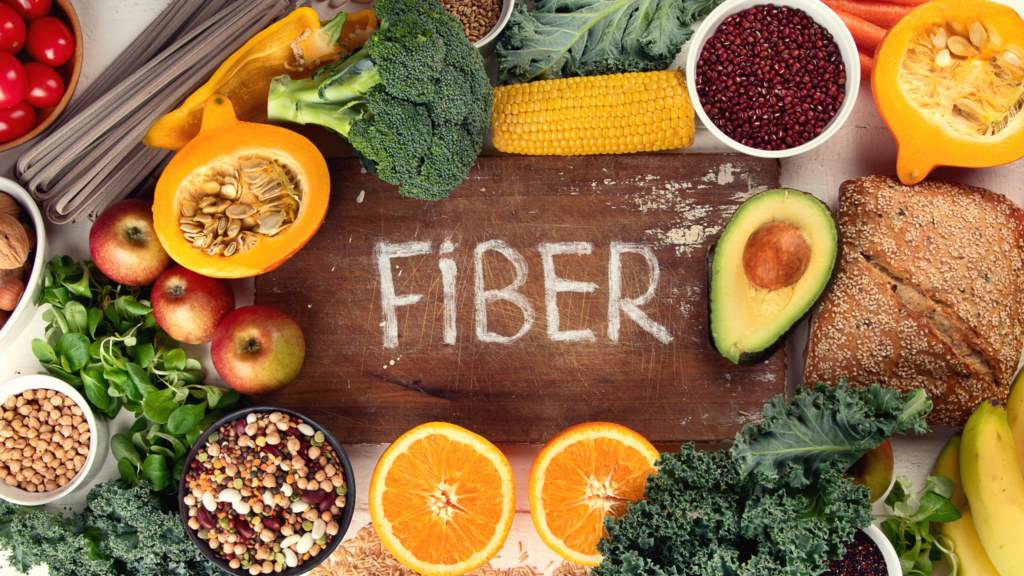
Eating more fiber is something that has been preached by parents, teachers, medical professionals, and so many others from the time people are children. What may not be immediately obvious is how fiber and heart health correspond.
Do fiber-rich foods help heart disease, for example? The answer to that would be a resounding yes, and there are other benefits to enjoy too. With that said, here’s a look at what dietary fiber is, how it contributes to your health, and even a recipe to make heart-healthy high-fiber foods that much more appealing.
Before focusing on fiber for heart health, it may be a good idea to understand what fiber is and its importance. Fiber is a compound that is also called bulk or roughage. These tend to be plant parts that your body cannot readily digest or absorb.
This is in contrast to protein, fat, and carbohydrates, which can be broken down and absorbed pretty handily. Fiber will simply pass through your digestive system. It has two categories, which are outlined below.
The soluble fiber variation, as the name implies, will dissolve in water. The result is a substance with a gel-like consistency. Heart-healthy fiber foods containing this kind will help to keep glucose levels and blood cholesterol levels down.
Look for soluble fiber in foods such as beans, apples, citrus fruits, carrots, psyllium, and barley.
Again, as the name implies, this variation isn’t the best at dissolving in a solvent. However, it is excellent at promoting consistent movement through your digestive system for material, and it will also improve stool bulk.
If you struggle with irregular stool or constipation, this is the kind of fiber you want in your diet. You can get it from wheat bran, whole wheat flour, vegetables, nuts, and beans.

Now it’s time to put the focus squarely on fiber foods and heart disease for a moment. This can be a bit confusing considering that there is no direct link between fiber and the heart considering that it just flows through the digestive system and never enters the bloodstream.
So, how is it that foods that contain fiber are good for heart disease? Well, much of it comes from the implications of a diet that is rich in fiber.
Plant foods, for example, that contain a lot of it are also going to have many vitamins, minerals, phytochemicals, and antioxidants. They are all great at reducing cardiovascular disease risk factors such as chronic inflammation.
Bear in mind too that dietary fibre intake also contributes to your feeling full after a meal, which means that you are unlikely to overeat. Not taking on calories that your body doesn’t need means that you’re less likely to introduce unwanted cholesterol and other undesirable compounds into your system.
It’s also good to point out that oat bran, rolled oats, barley bran, psyllium, and whole grains are known for viscous soluble fiber, which is a direct contributor to lowering total and LDL cholesterol levels.
Finally, fermentable fiber is complete with a series of raw materials for the kinds of compounds that are incredibly beneficial to overall cardiovascular health.
While the positive implications for blood pressure, cholesterol, and other elements that fiber can bring are great for heart health, having enough in your diet does so much more than that. Consider the following benefits:
Nutritionists recommend that people consume between 25 and 40 grams of fiber daily, which will translate to somewhere between 15 and 20 grams of fiber in each 1,000 calories. Most people do not hit this number, which is why it’s recommended to add fiber-rich foods such as bran cereal, whole grain flour, quinoa, brown rice, fruits, and vegetables.
You’re going to want to grab some olive oil, lean ground beef, onion, garlic powder, onion, powder, cayenne pepper, no-salt tomato sauce, ketchup, Worcestershire sauce, spicy brown mustard, light brown sugar, and whole wheat hamburger buns.
Heat the oil in a large non-stick skillet over medium heat, at the beef, breaking it up with a spoon until lightly browned but not cooked through.
Transfer the beef to a medium bowl after four minutes and reserve the pan drippings. Add the beans and onion to the pan and cook for about five minutes. Throw in all your powdered seasonings and the other ingredients. Put the beef back in and cook while stirring often.
You want the beef to be cooked through and the sauce to be slightly thickened, which will take about five minutes. Serve on the buns.

Dietary fiber intake is essential for heart and overall health thanks to its ability to thicken stool, reduce cholesterol, and more. Incorporate more wheat bran, whole grains, beans, fruits, and vegetables in your diet to hit the daily intake requirements.
Copyright © CardiacKrock.com. 2022 All rights reserved. | Sitemap